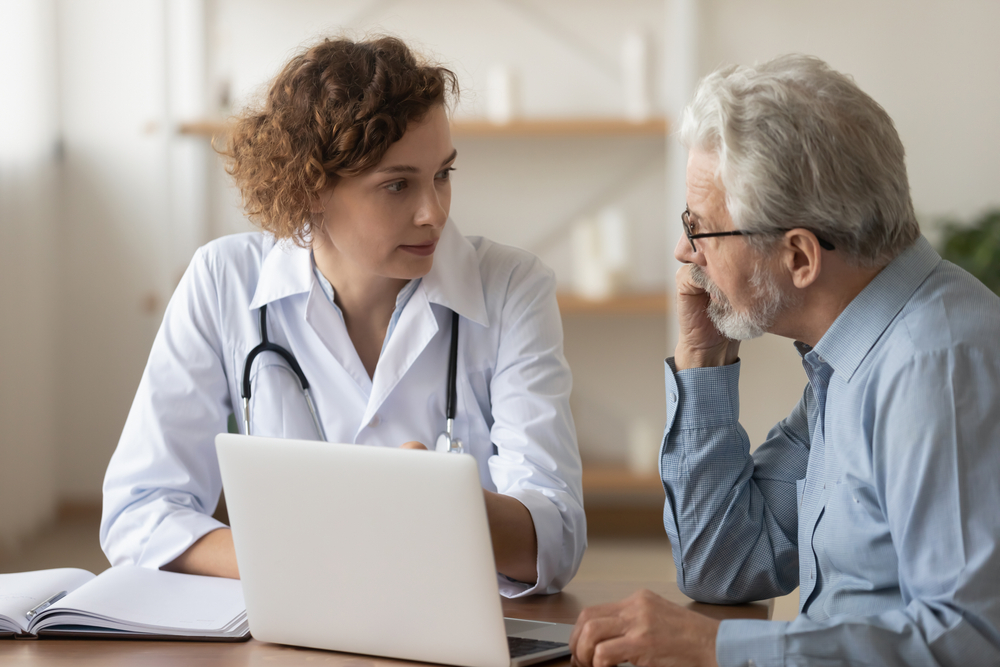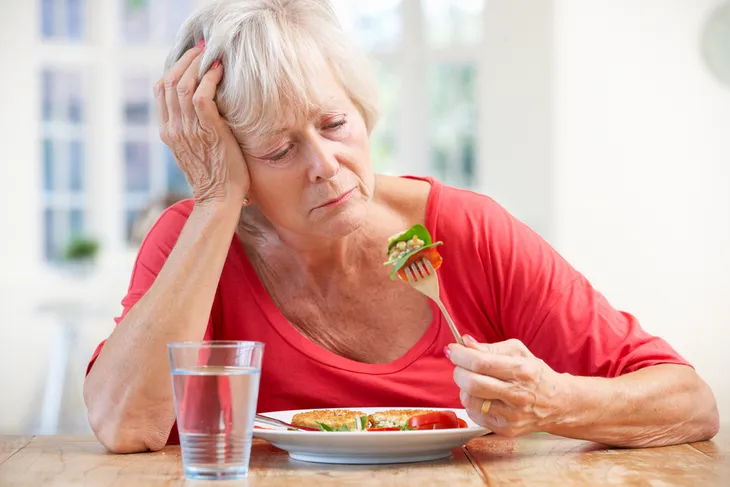- Gastric cancer is typically quite difficult to diagnose because most people don’t show symptoms until the cancer has progressed into its later stages.
- Gastric cancer can be treated with surgery, radiation therapy, chemotherapy and targeted drug therapy.
- One of the best ways to prevent stomach cancer and improve your overall health is to eat a healthy diet, exercise regularly and avoid smoking.
Gastric cancer, also known as stomach cancer, is a surprisingly common cancer. Even though you might not hear much about stomach cancer, it’s prevalent, affecting 27,510 people annually. It commonly affects older adults. In fact, The American Cancer Society estimates that six out of every 10 people diagnosed are over age 65.
Are you at risk for gastric cancer? This type of cancer, which is also called stomach cancer, can strike anyone, and certain factors can make you more likely to develop it. The key to treating gastric cancer is catching it in its earliest stages, especially for older adults. But, in order to do this, you’ll need to be informed about the early signs of gastric, or stomach, cancer.
What is Gastric Cancer?
According to Healthline, gastric cancer is characterized as a growth of cancerous cells within the lining of the stomach. Stomach cancer is relatively rare in comparison to other types of cancer, but the danger in this disease is the difficulty of diagnosing it.
This type of cancer is typically quite difficult to diagnose because most people don’t show symptoms until the cancer has progressed into its later stages. It’s important to be aware of the early signs and risk factors so you are best equipped to face this disease.
 Shutterstock/metamorworks
Shutterstock/metamorworksWhat Causes Gastric Cancer?
Your stomach is one portion of the upper section of your digestive tract. Your stomach is your body’s tool to digest food and is responsible for moving nutrients to the rest of your digestive organs.
Gastric cancer typically occurs when normal cells within the upper digestive system begin to genetically mutate. This causes the cells to grow, become cancerous and eventually form a tumor. This process typically happens slowly and gastric cancer tends to take many years to develop.
 Shutterstock/Yeti studio
Shutterstock/Yeti studioRisk Factors: Disease and Condition
Certain risk factors can increase your chances of developing gastric cancer. Every specific type of cancer has different risk factors, but the good news is that many can be stopped, changed, or even eliminated. Understanding the risk factors of gastric, or stomach, cancer can help you determine if you’re at a higher risk for developing the disease.
There are a few diseases and conditions to be aware of that may increase your risk of developing gastric cancer, including:
- Helicobacter Pylori (H. Pylori) Infection – Being infected with H. pylori is a major cause of gastric cancer.
- Stomach Lymphoma – Those with a specific type of stomach lymphoma can have an increased risk.
- Stomach Polyps — This can be defined as abnormal masses of tissue that grow on the lining of the stomach.
- Tumors in other parts of the digestive system.
Other factors, such as inherited cancer syndromes or genetic and hereditary disorders, can also increase your risk.
 Dragana Gordic / Shutterstock
Dragana Gordic / ShutterstockRisk Factors: Personal Attributes
There are also some personal attributes that can increase your risk of developing gastric cancer, including:
- Gender – Men more commonly develop stomach cancer.
- Age – Stomach cancer rates increase dramatically after age 50, and again after age 60.
- Ethnicity – Stomach cancer is found more commonly in Hispanic Americans, African Americans, Native Americans, and Pacific Islanders.
- Diet – Your risk for gastric cancer increases if you eat many smoked foods, salted fish and meats, and pickled vegetables.
- Tobacco Use – Smoking or using other tobacco products increases the risk of stomach cancer.
- Being Overweight or Obese – Your weight and overall health can be linked to stomach cancer.
There are other risk factors for gastric cancer, but these are some that can affect many people.
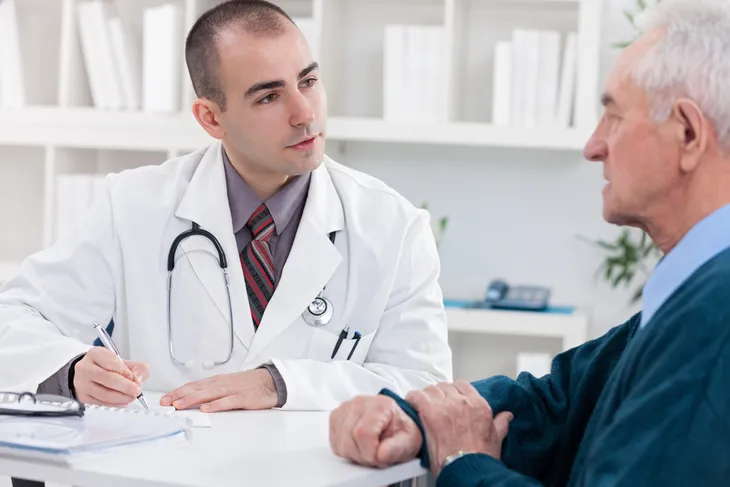 Shutterstock/Lucky Business
Shutterstock/Lucky BusinessGastric Cancer Can Be Difficult to Detect
When stomach cancer first forms, it’s very difficult to notice or detect. According to the NCI, there are typically no early signs or symptoms of stomach cancer and most people don’t know they have it until it’s progressed to its later stages.
This makes it incredibly difficult to detect, and you can’t share any changes with your doctor if there aren’t any noticeable changes in your health. Missing the signs of gastric cancer could delay a diagnosis, which can cause complications and difficulties later on.
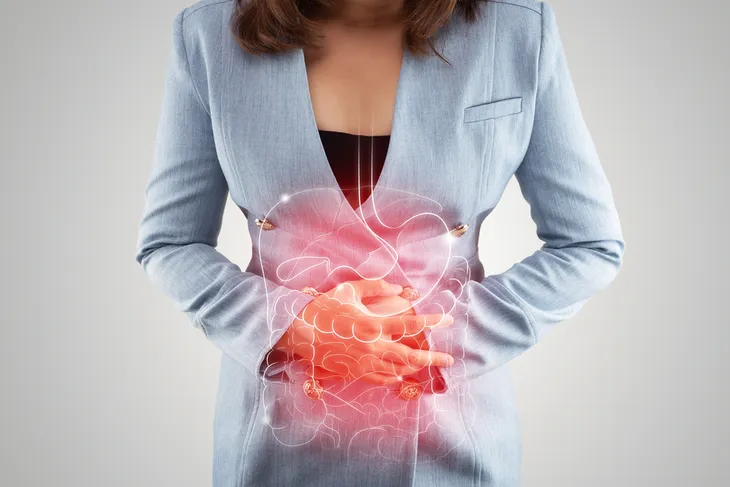 Shutterstock/Emily frost
Shutterstock/Emily frostGastric Cancer Early Signs and Symptoms
Despite gastric cancer being difficult to detect, it’s still important to know what small or subtle signs could be stomach cancer. According to the American Cancer Society, the following are often early symptoms of gastric cancer:
- Loss of appetite.
- Unexplained or unexpected weight loss.
- Stomach/belly pain or discomfort.
- Feeling full after small meals.
- Heartburn.
- Indigestion.
- Nausea and vomiting (or vomiting with blood).
- Swelling in the stomach.
- Blood in stool.
- Anemia.
If you notice any of these changes, it’s important to let your doctor know. Many can be signs of gastric cancer or another, less concerning condition. But, because stomach cancer is so difficult to detect, it’s always a good idea to alert your doctor for testing.
Stages of Gastric Cancer
Gastric cancer is a challenging type of cancer to detect. In its earliest stages, it’s nearly impossible to notice the cancer’s appearance or growth. In fact, only one in five stomach cancer diagnoses are made when the cancer is still in its early stages. More commonly, gastric cancer is discovered once it’s already spread to other areas of the body.
Doctors determine the stages of gastric cancer in order to determine how significant the cancer is, where it’s located, and what treatment options are possible. The following are the stages of gastric cancer:
- Stage I: The cancer tumor is only found in the top layer of the tissue of the esophagus or stomach.
- Stage II: The cancer has spread into deeper layers of tissue and muscle, such as the wall of the stomach. It may also be present in lymph nodes.
- Stage III: The cancer has grown into all layers of the esophagus or stomach. It’s begun spreading to nearby areas, and it’s extensively present in lymph nodes.
- Stage IV: The cancer has spread to other areas of the body.
How is Gastric Cancer Diagnosed?
Since gastric cancer is rarely detected during its early stages, the disease often goes undiagnosed until its more advanced. To make a diagnosis, your doctor will perform a few tests to gather more information. Your doctor will likely perform an initial physical exam to check for any abnormalities. They may also request a blood test and a test to check for the presence of H. pylori bacteria.
If your doctor believes that you may be showing signs of stomach cancer, further diagnostic testing may be requested. This could include tests that specifically look for tumors and abnormalities in the stomach and esophagus such as an upper gastrointestinal endoscopy, a biopsy or imaging tests such as a CT scan or X-ray.
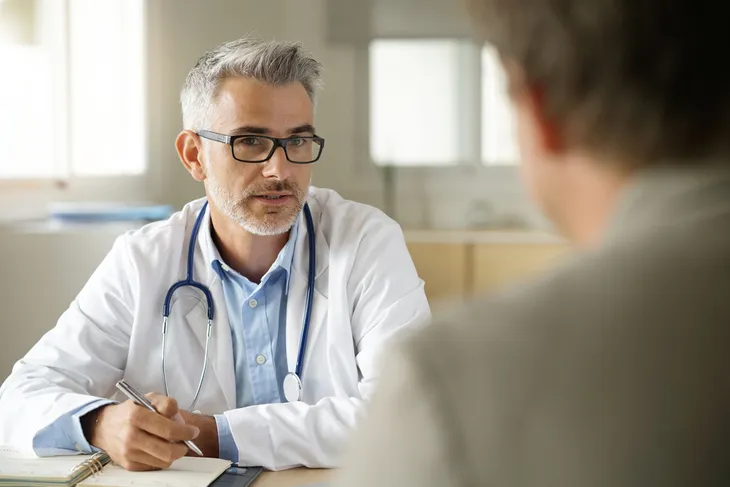 Shutterstock/goodluz
Shutterstock/goodluzIn-Depth Gastric Cancer Testing
If you’re diagnosed with gastric cancer, your doctor will perform in-depth testing to determine what stage your cancer is at. From there, your stage will determine which course of treatment you pursue.
Doctors can recommend many different treatment options for gastric, or stomach, cancer. Your overall health, age, as well as your prognosis, will help determine which treatment or combination of treatments is best. The goal of the treatment is to prevent the cells from spreading and treat the cancer cells in the stomach.
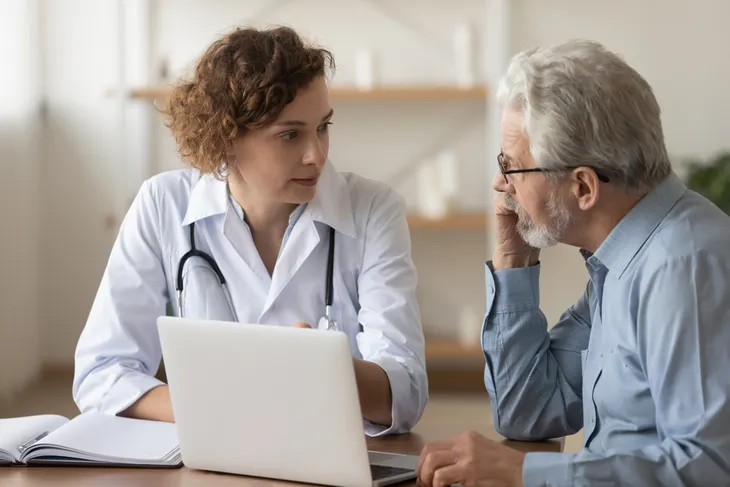 Shutterstock/fizkes
Shutterstock/fizkesGastric Cancer Treatment
The following are some of the common treatment options for gastric cancer:
- Surgery: Gastric cancer tumors may be able to be removed via surgery. It’s also an option to remove part of the affected organs and lymph nodes and leave only healthy tissue behind.
- Radiation Therapy: Radiation therapy uses beams of energy to kill cancerous cells. It’s often used in combination with other treatments to eliminate cancerous cells.
- Chemotherapy: Chemotherapy is a drug that’s given to patients to kill cancer cells. It can kill cells in the stomach and the entire body, and it can shrink tumors. It can also be used with other treatments.
- Targeted Drug Therapy: Different drugs and medications can be used to attack specific cancer cells, specific abnormalities caused by cancer, and to help the immune system better fight off cancer cells. Targeted drug therapy is often used with chemotherapy.
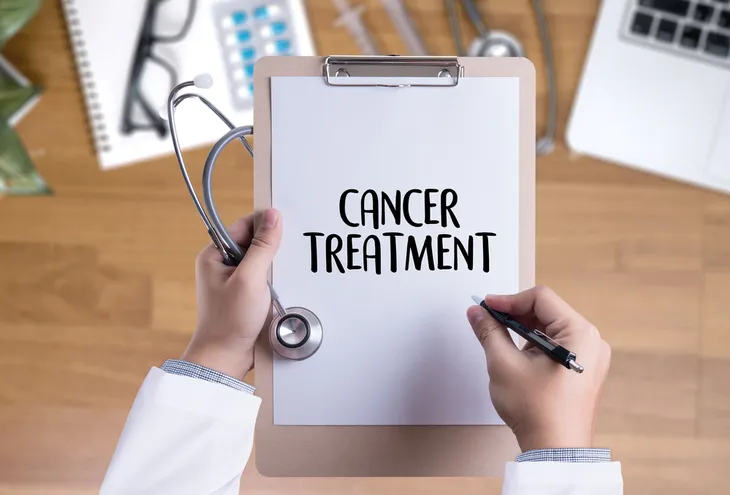 Shutterstock/one photo
Shutterstock/one photoFuture Treatment Options
In addition to these currently available and tested treatment options, there is more research being conducted every year. As the Mayo Clinic notes, potential future treatments including new medications and therapies, such as immunotherapy, may be able to better kill cancer. It’s important to stay knowledgeable about these potential treatments, as well as the latest updates on gastric cancer. This cancer, although difficult to detect in its early stages, may have a promising prognosis in the future as breakthroughs occur and research continues.
In the meantime, it’s important to take note of any changes in your body. If you have risk factors for gastric cancer, you want to be aware of its signs and symptoms to get screened and catch it as soon as possible.
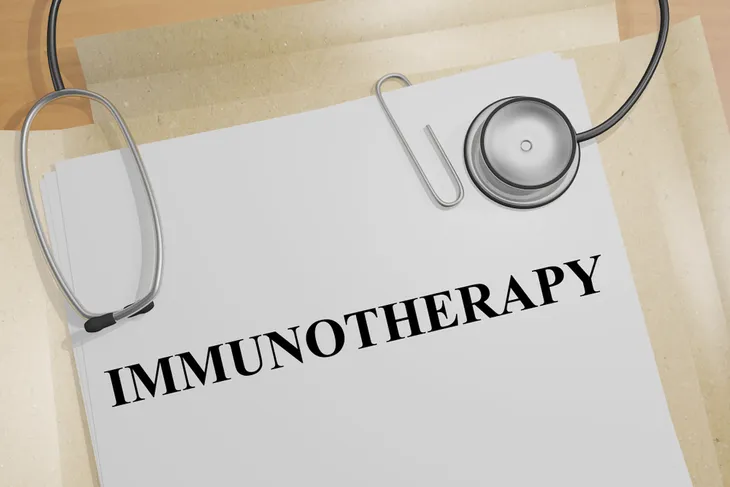 Shutterstock/hafakot
Shutterstock/hafakotGastric Cancer Prevention
There are a few actionable steps you can take now to prevent stomach cancer as well as many other diseases and conditions. One of the best ways to prevent stomach cancer and improve your overall health is to eat a clean, healthy diet that is high in fruits and vegetables and low in salt and red meat.
It’s also important to maintain a healthy weight and practice regular exercise habits. It’s also best to avoid smoking because it can significantly increase your risk of stomach cancer and other conditions.
 Shutterstock/stockcreations
Shutterstock/stockcreations